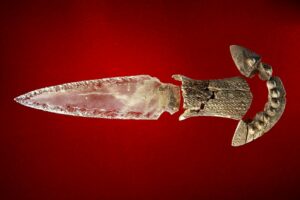Deep beneath the South Atlantic, Bouvet Island is described as one of the most isolated locations on Earth, to which the nearest landmass is Antarctica. If there is a middle of nowhere, this nineteen square mile piece of land in the Atlantic ocean uninhabited and covered by glacial ice is undoubtedly that one.
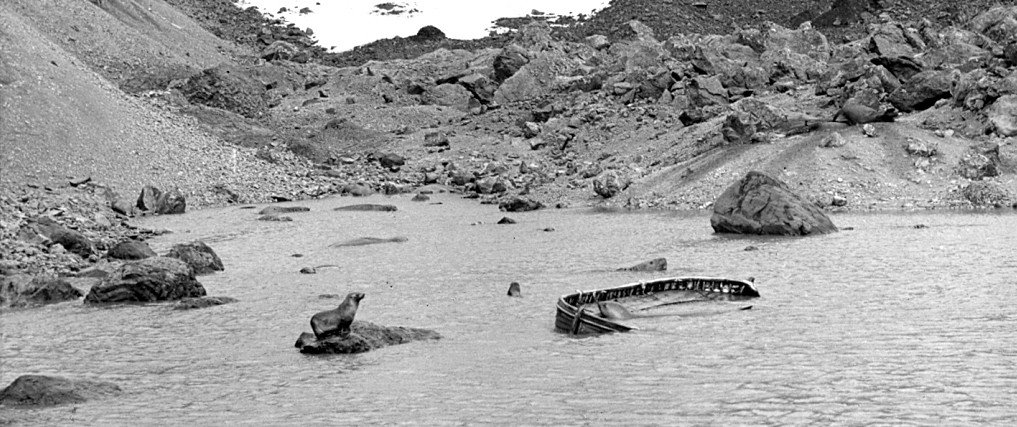
But what makes the Bouvet Island even stranger is: in 1964, an abandoned lifeboat was found on this extremely isolated island. Apart from the boat, there was no other sign of human life or activity on the island and there are no trade routes running within 1,000 miles of this location. The origin of the boat is still a mystery.
Bouvet Island – the most isolated place on Earth
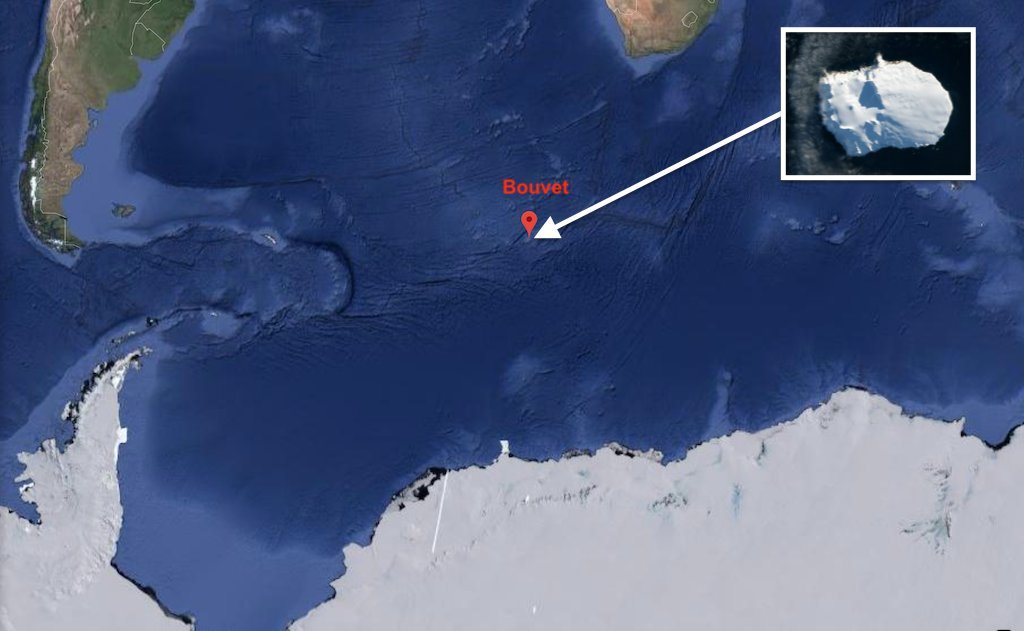
Being the world’s most remote island, Bouvet Island is located nearly 1,000 miles from another swath of land—a sector of Antarctica called Queen Maud Land. Tristan da Cunha is another remote island and the nearest inhabited landmass from the Bouvet Island which is 1,400 miles far from it. And the island is 1,600 miles from the nearest country South Africa — roughly the distance from Paris to Moscow.
The mystery behind a boat on Bouvet Island
Originally discovered in 1739 by Norwegian explorer Jean Baptiste Charles Bouvet de Lozier, the island is a wasteland of rocks and ice, with no vegetation aside from the occasional lichen or moss. From the sky, it looks like a giant, flattened snowball. Since 1929, it’s been a territory of Norway, and in 1977, an automated weather monitoring station was built on the island. But the island’s biggest oddity came to light in 1964, when a team of researchers stumbled upon a mysterious boat on the island, they had no explanation to how this boat ended up there in such a remotely uninhabited place!
Bouvet – a volcanic island
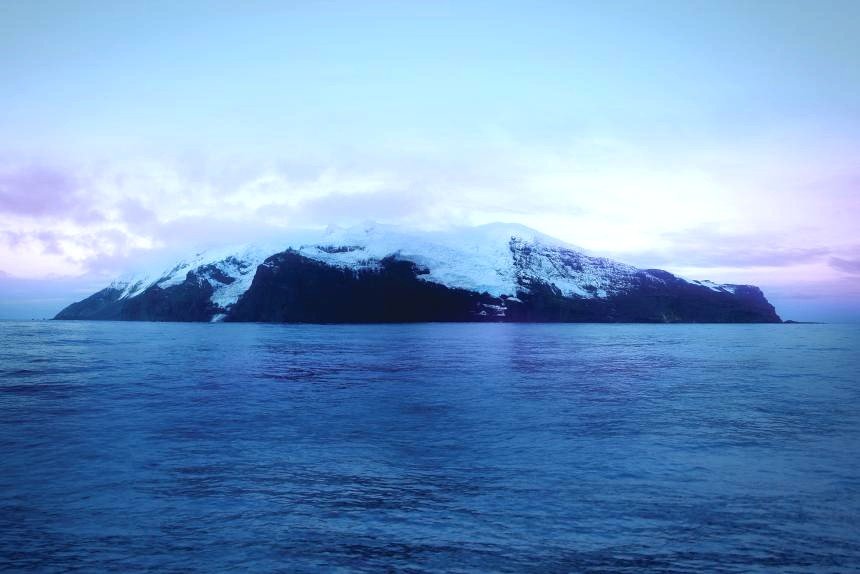
The South African government, with Norway’s permission, was investigating the construction of a manned station on the island, and in the 1950s set out to see if there was enough flat land space on Bouvet Island to meet their needs. They determined that the terraform did not suit their needs. Also, they found that island had grown, likely due to a volcanic eruption, but the weather conditions did not warrant the formal study of the new landmass.
Discovery of the mystery boat on Bouvet Island
In April of 1964, they returned to finish their study of the newer parts of the island — and found a mystery. A boat, marooned on the island, with a pair of oars a few hundred yards away, lay in a lagoon within the new landmass. The boat lacked any identifying markings and, although there was some evidence that people were on the boat, no human remains were found.
The questions that remain mystery to this day
The open questions are numerous. Why was a boat anywhere near the area — quite literally, in the middle of nowhere? Who was on the boat? How did they get there — over a thousand miles from civilization — with nothing more than a pair of oars? And what happened to the crew? The answers are few and far between, as noted by London historian Mike Dash, who took an in-depth look at the question, but came forward with nothing like a convincing answer.
Possible explanations
Many have tried to draw a conclusion to the Bouvet Island mystery saying, the boat was somehow washed up in Bouvet Island from currents in the ocean. But the South African government discovered the boat with two oars in an island lagoon. There were signs that humans had once been on board, but there was no sign of their bodies. While many have explained that, after their deaths, their bodies were somehow washed away in the sea, despite it was an isolated lagoon in the middle of the island.
Many have even claimed, those forlorn crew somehow managed to drift their boat to the island shore then take it into the lagoon to protect it from the sea tide. And within some days, they all had died of starvation or dehydration near the sea beach and their bodies washed away.
The most convincing and rational explanation could be found in the book of Transactions of the Oceanographical Institute (Moscow, 1960), in Page No 129. It conveys that “the scientific reconnaissance vessel ‘Slava-9’ began its regular 13th cruise with the ‘Slava’ Antarctic whaling fleet on 22 October 1958. On 27 November it arrived at Bouvet Island. A group of sailors landed. Eventually, they couldn’t leave the island in time because of worsening weather conditions and stayed on the island for about three days. The people were withdrawn by helicopter on November 29, 1958.”
There’s also another similar theory that a group of world war soldiers had lost in the sea and they drifted to Bouvet Island. Perhaps, they were rescued by helicopter or ship and had left the boat abandoned there. However, there’s no evidential document to verify this claim. In fact, there are so many theories to this strange discovery, it’s hard to nail one down.
The Vela Incident
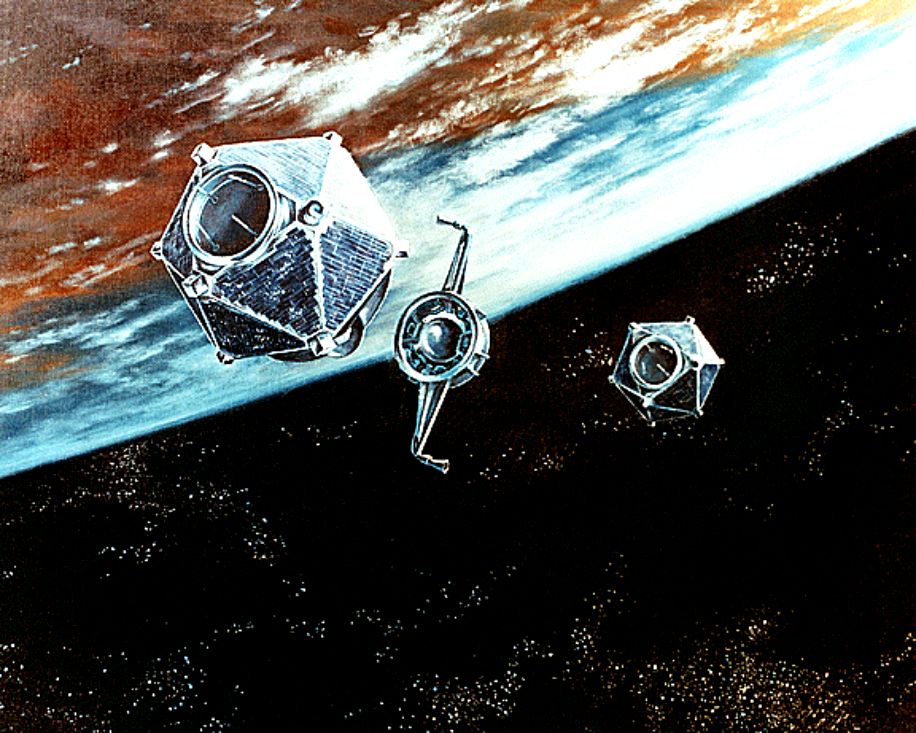
The Vela Incident is another strange yet interesting event linked to the Bouvet Island mystery. The incident took place on 22 September 1979, on or above the sea between Bouvet and Prince Edward Islands, when the American Vela Hotel satellite 6911 registered an unexplained double flash. Though this observation has been variously interpreted as a nuclear test, meteor, or instrumentation glitch, many are still curious to find a more mysterious thing from it.
Conclusion
Given the remoteness of Bouvet Island and its inhospitable landscape, the origin of the boat and its potential crew has gone mostly unexplored for a half-century. Most likely, it will remain that way being one of history’s most sensational unsolved mysteries.




